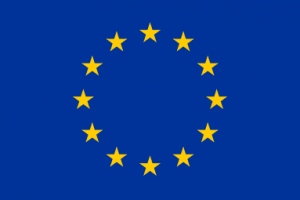The interdisciplinary, imaginative, future-oriented nature of the FEDORA project, together with its aim to develop new narratives for science education, were the issues that pushed us to bring together the second quantum revolution with one artistic expression. We proposed a creative writing workshop to a group of 14 upper secondary-school students. They were introduced to the relationship between science and literature and they had to produce a final piece of writing: this allowed us, not only to understand the engraftment of epistemic concepts and new knowledge related to the scientific content at stake, but also to investigate the emotions that arise from being immersed in a time of changes, that we have defined as scientific-technological, social, but also and above all cultural and conceptual.
The request for the production of the written works, therefore, took place downstream of a very rich disciplinary part that started with the history of classical computers and arrived at the inclusion of quantum computers in our contemporary social context, where nations are mobilizing in order to prepare enormous funding for the technological development as a function of what has been called "quantum supremacy". Then, the students were introduced to the quantum language and logic as tools that allow understanding of how the circuits of these new computers work, as well as the applications that will probably be protagonists of our future-present, such as teleportation and quantum random walk, which exploit physical properties such as the superposition principle and quantum entanglement.
In order to prepare students to develop their final work - they had to start with scientific knowledge but be also literary-creative - they were introduced to a framework that underlined some general aspects of the relationship between science and narratives. We have identified two approaches with which science and literature have often interfaced: the diachronic-visionary, linked to technological development and science fiction (“Imagining the future”) and the synchronic-emotional, with which we took the opportunity to probe the fallout culture of the first quantum revolution in contemporary narratives (“Feel the present”). The claim "Imagine the future" was then also translated from an emotional point of view into "Imagine/Feel the future". Why? Because every scientific-technological revolution is also a generational problem, and depending on the generation, you can differently "feel" the advent of change on your skin.
We then asked ourselves about the most appropriate form to investigate the two aspects and the winning idea was to propose to each student the drafting of a letter "Dear future me..." (www.futureme.org). Letters have always been informal, intimate texts, bearers of emotions, secrets, and confidences. Looking at Amaldi's post-war letters to friends and colleagues, we have found how much through the epistolary form we could talk about science and technology, accompanied with thoughts, hints and personal impressions: the epistemic contents linked to a particular historical moment. In addition, addressing the letter to a recipient situated in the future it was natural for the kids to carry their imaginations forward in time, allowing us to investigate how they think, hope or fear the second quantum revolution will. At the same time, the activity created a space for the students to ask themselves questions and, in the best of cases, to project a desirable vision of a possible new order of man-technology-nature.
From the letters we can perceive inner dialogues that mix opposing emotions: there are those who wait trying not to have too many expectations, and there are those who confess the torment linked to uncertainty, but most of the students are open to hope and respond positively to the narration for which the first quantum revolution has made the world fall into indeterminism, while the second will be able to bring into our culture those epistemic and future skills that allow us to harness and, why not, also to ride the uncertainty that marks our times.
Talking about the future in an uncertain present already assumes the value of a promise.
Danijel, 18 years old
